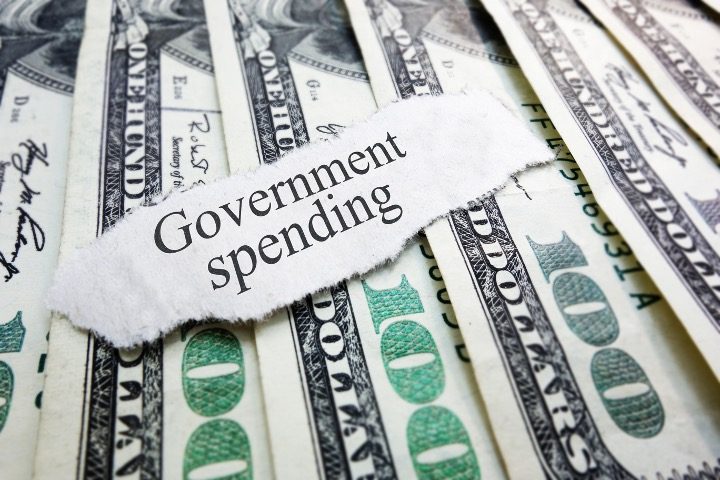
The Congressional Budget Office (CBO) released on Tuesday a budget review that exposes excessive government spending along with lower revenue, leading to their revised projection that the total federal deficit for 2023 will exceed $1.6 trillion and approach $1.7 trillion.
The CBO reported in May that the deficit would be $1.5 trillion this fiscal year. However, the government has been unable to collect anticipated revenue to cover their growth in spending as well as fight the effects of inflation.
CBO analysts reported:
On the basis of its estimate of the deficit through July and preliminary estimates of revenues and outlays in August and September, CBO now expects that the total deficit for 2023 will be $1.7 trillion, or about $200 billion larger than the estimate it published in May. Revenues and outlays alike are now anticipated to be below amounts CBO projected in May, but the reduction in revenues is larger.
The report didn’t share any good news for the Biden administration, which has been touting the success of Bidenomics. The CBO reported that total receipts are down by 10 percent for the year, or $418 billion less than during the same period a year before. The decline of revenue, according to the report, is “mainly because of smaller-than-anticipated collections of individual and corporate income taxes.” The report added that “the reasons for the difference will be better understood as additional information becomes available; one factor may be smaller collections of taxes on capital gains and other types of income.”
Spending, or outlays, grew during the first 10 months of fiscal year 2023. The outlays reportedly totaled $5.3 trillion, “$473 billion (or 10 percent) more than during the same period last year.”
Large spending programs increased by a total of $244 billion, or 12 percent from the previous year. The CBO report highlighted the following programs:
- Outlays of the Department of Education increased by $69 billion—from $10 billion in July 2022 to $79 billion in July 2023—primarily because the Administration recorded its estimate of the costs ($71 billion) associated with modifying outstanding loans under the new income-driven repayment plan….
- Outlays for Medicare increased by $13 billion (or 19 percent).
- Net outlays for interest on the public debt increased by $12 billion (or 20 percent).
- Outlays for Social Security rose by $12 billion (or 12 percent).
“The largest decrease in outlays was for coronavirus relief to state, local, tribal, and territorial governments, which fell by $9 billion—from $9 billion in July 2022 to $40 million in July 2023,” CBO analysts wrote. (Emphasis in original.)
Department of Defense (DOD) spending went up 8 percent, or by $45 billion, mostly as increased spending for “operation and maintenance” and “research and development.” Healthcare services for veterans pushed up the Department of Veterans Affairs (VA) spending by $27 billion, or 12 percent.
Adding to the government spending was the $52 billion infused into the Federal Deposit Insurance Corporation (FDIC), which the CBO shared was a “result of facilitating the resolution of bank failures in the spring of 2023.” The report claimed that the “FDIC expects to recover much of that amount by continuing to liquidate the banks’ assets and collecting higher premiums from FDIC-insured institutions over the next several years.”
However, the largest increase in spending is the nearly 34-percent jump over last year for interest payments on the public debt, mostly driven by higher interest rates due to inflation. The added cost is $146 billion, increasing the net interest payment from $426 to $572 billion in just one year.
The CBO’s projected growth of the deficit is of grave concern, as the Biden administration and a divided Congress run our nation into a fiscal abyss. The House Budget Committee knows this well, as they acknowledged the CBO report in a press release on Tuesday, sharing their concern over the budget-review findings. They wrote:
CBO’s monthly budget review for July is further compounded by Fitch Ratings’ August 1 downgrade of the U.S. credit rating from AAA to AA+ for just the second time in our nation’s history.
- Fitch said: “The rating downgrade of the United States reflects the expected fiscal deterioration over the next three years, a high and growing general government debt burden, and the erosion of governance relative to ‘AA’ and ‘AAA’ rated peers over the last two decades that has manifested in repeated debt limit standoffs and last-minute resolutions.”
Together, Fitch Ratings’ credit rating downgrade and CBO’s latest analysis reiterates what we already know: partisan politics and reckless Washington spending will continue to erode America’s historic record as a global, economic superpower.



